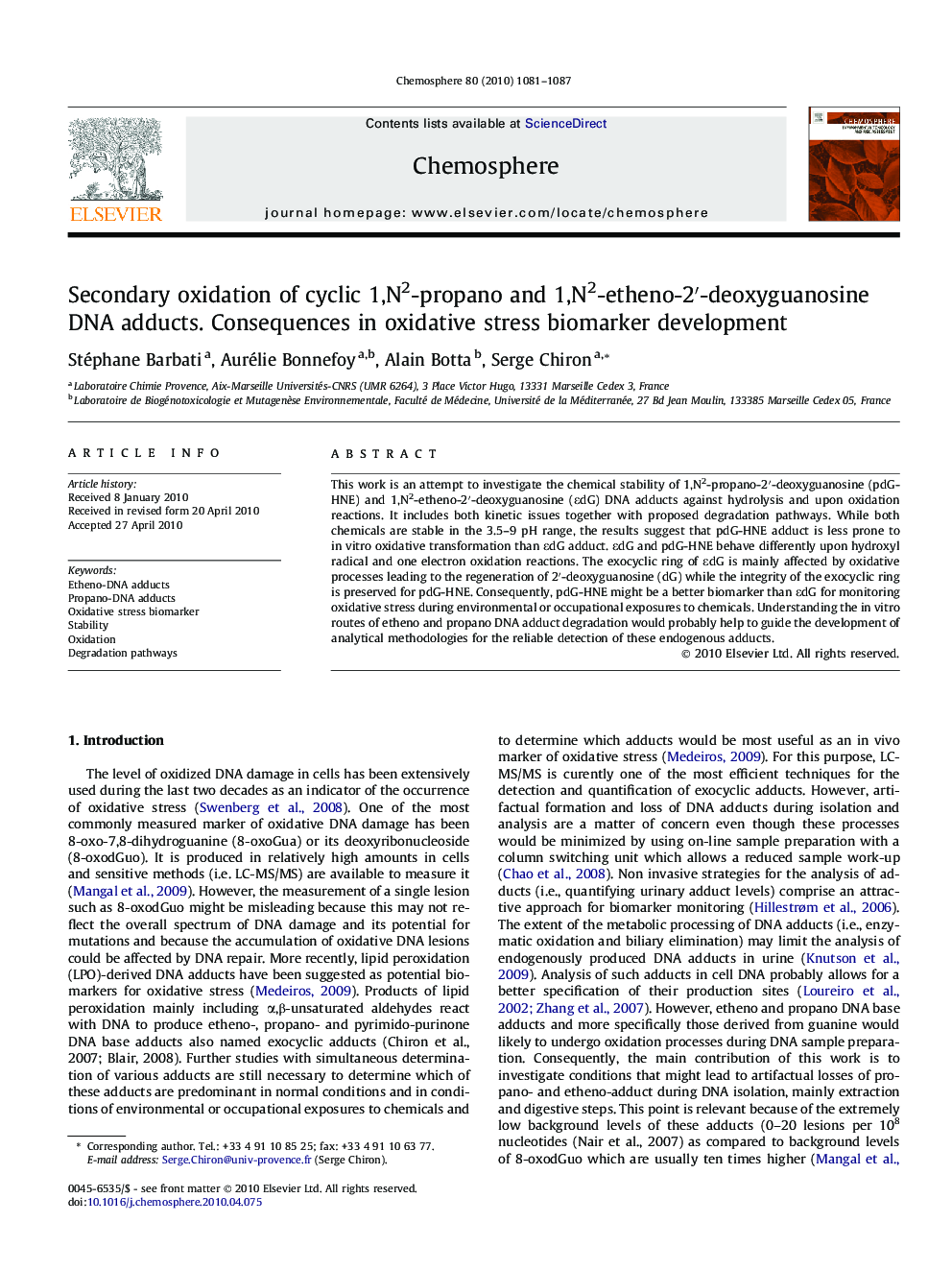| Article ID | Journal | Published Year | Pages | File Type |
|---|---|---|---|---|
| 4411686 | Chemosphere | 2010 | 7 Pages |
This work is an attempt to investigate the chemical stability of 1,N2-propano-2′-deoxyguanosine (pdG-HNE) and 1,N2-etheno-2′-deoxyguanosine (εdG) DNA adducts against hydrolysis and upon oxidation reactions. It includes both kinetic issues together with proposed degradation pathways. While both chemicals are stable in the 3.5–9 pH range, the results suggest that pdG-HNE adduct is less prone to in vitro oxidative transformation than εdG adduct. εdG and pdG-HNE behave differently upon hydroxyl radical and one electron oxidation reactions. The exocyclic ring of εdG is mainly affected by oxidative processes leading to the regeneration of 2′-deoxyguanosine (dG) while the integrity of the exocyclic ring is preserved for pdG-HNE. Consequently, pdG-HNE might be a better biomarker than εdG for monitoring oxidative stress during environmental or occupational exposures to chemicals. Understanding the in vitro routes of etheno and propano DNA adduct degradation would probably help to guide the development of analytical methodologies for the reliable detection of these endogenous adducts.
